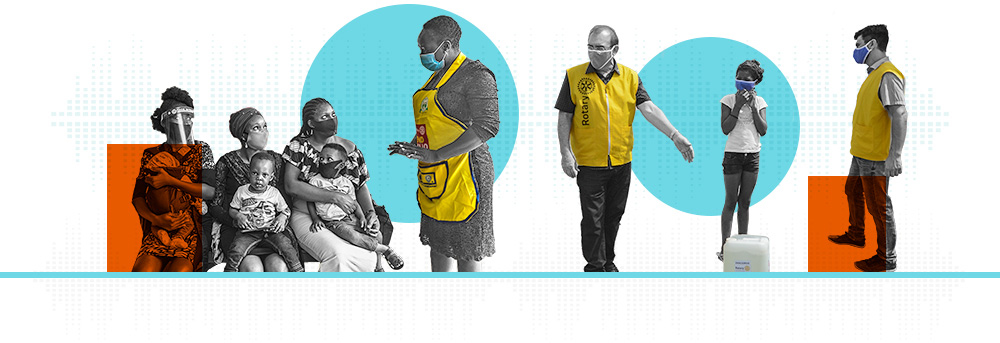Ron Denham, chair of the Water and Sanitation Rotarian Action Group, addresses Rotary’s commitment to water at an independently organized TED event.
By Ron Denham, a member of the Rotary Club of Toronto Eglinton, Ontario, Canada, and chair of the Water and Sanitation Rotarian Action Group.A change is taking place in the way Rotarians approach water and sanitation programs.
We realize that the challenge of meeting the Millennium Development Goals is something that no organization can achieve on its own; not even Rotary with its 33,000 clubs and over 1.2 million members. To be successful we need leverage, the leverage that comes from collaboration with others who share our goals.
The most notable example of this is the International H2O Collaboration, an alliance between Rotary International and USAID. Rotary clubs in Ghana, the Dominican Republic, and the Philippines are working together to bring safe water and sanitation to hundreds of communities and schools.
There are many other examples, less publicized but equally effective. In Uganda, a very successful relationship between World Vision and the Rotary club of Gulu is improving the lives of up to 50,000 villagers through a joint bore-hole and behavior change program. The World Vision project leader says “having local Rotarians explain the importance of hygiene and handwashing is much more compelling than when presented by visiting experts from outside the country.”
In Tanzania and Malawi, Rotary clubs are collaborating with Africare and H2O for Life in a program supported by Procter & Gamble to bring safe water to rural households and schools.
In Kegva Village, Marahashtra, India, the Rotary club of Bombay Mid-Town has formed a relationship with the National Institute of Rural Integrated Development, an NGO that has worked in the community for over 40 years. The institute has gained the trust of villagers, which has translated into strong support and commitment for the Rotary-led watershed development program.
The Rotary club of La Molina Vieja, Peru, supported by The Rotary Foundation, embarked on a program to help local Indian villagers build, install, operate, and maintain a bio-sand filter program. The program succeeded with the help of a local NGO and technical support from the Center for Affordable Water and Sanitation Technology in Calgary, Canada.
As water, sanitation, and hygiene programs become more complex it is unlikely that any Rotary club has the range of resources and skills to ensure a sustainable program. Success depends increasingly on collaboration with organizations having complementary resources, funding, technology, local contacts, knowledge of the culture, and expertise. Reaching out is essential if Rotary is to take its rightful place at the humanitarian table.

Reblogged this on korshiequashigah.
LikeLike
Pingback: Rotary collaborates with others for clean water | Warsaw Rotary , Club 3393, District 6540
Sharing this important topic through TED will result as one of the best ways for Rotary Public Image; showing to others what a great NGO may contribute to a World’s problem – the great need of Water.
LikeLike
Is there any prerequisite for WASRAG to assist Club/District to water and sanitation schemes?
LikeLike
Can WASRAG assist in joining Clubs/Districts for joint TRF Grant Water & Sanitation Projects in India ? ?
LikeLike
Bob,
Thanks for your presentation to our Rotary Club on Tuesday. Thought that you might be interested in this article from our just published Rotarian magazine
LikeLike
The Columbia Center Rotary Club of Kennewick,Washington is considering a collerbation with dropinthebucket.org to drill 20 boreholes in Sudan and to provide for the follow-up maintenance and hygiene care. Anyone else willing to be a partner?
LikeLike
Change is taking place in the way Rotarians approach water and sanitation programs…Yes Indeed !!
LikeLike